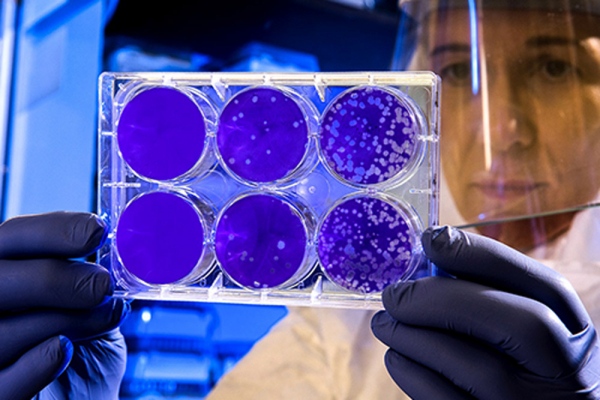'The danger of vaccines is not giving them'
Alejandro Reyes Martin, associate professor at the Faculty of Health Sciences of the UAH, comments in uah.esnoticia the history of the anti-vaccine movement and explains the importance of a vaccine as a remedy to COVID-19.
- The anti-vaccine movement is one of the negationist movements that have developed the most during the pandemic. Why do these kinds of movements succeed? How can they be countered?
Antivaccine movements have a long social history that runs parallel to vaccine development. The small pox vaccine, during the 18th century, generated so much resistance that ut had to be established by law in England. In 1905, the Jacobson vs. Massachusetts case opened the door definitively to the control of smallpox in the United States. The current situation is guaranteed both in terms of adverse effects and in terms of effectiveness and efficiency.
The doubtful attitude toward vaccines includes a broad spectrum of positions, from the most irrational, fundamentalist and sectarian negationism, up to the given up acceptance tinted with 'the vaccine for others', through the sensible search for detailed information.
The commercialization of any vaccine, like any medical product, requires a long-lasting and lengthy process to confirm safety and efficacy. This has led to the development of a new discipline, vacinology. Once a vaccine has been marketed, safety monitoring systems are available in both the European Union and the United States (including the Vaccine Adverse Events Reporting System (VAERS)). These systems have identified uncommon side effects by comparing them with the presence of the same adverse effects in the unvaccinated population.
- Do you think the antivaccine sentiment was as relevant before the pandemic?
I believe that the uncertainties of the pandemic have strengthened fear attitudes, especially when the multiple security mechanisms surrounding the implementation of the different vaccine strategies are unknown; it´s assumed that it´s more dangerous to get vaccinated than not to get vaccinated, because 'this is not going to happen to me when I wear a mask'.
The danger of vaccines is not to administer them, as it´s dangerous to drive a car without an airbag. If we have an immune airbag, why not use it?
- This year, the flu vaccination campaign is more important than ever, why is it important to prevent flu infections this fall?
The reticence against the flu vaccine is multiple, not only the fear but the laziness or the 'I never get the flu', as if to die from the flu you need to pass it several times; for example, all mushrooms are edibles but some of them are eaten only once: the first time you catch the flu can be your last.
The benefit of influenza vaccination is double, not only at the personal level but also at the community level. If I get vaccinated, I interrupt the chain of transmission, even if it´s only in one humble link. Solidarity isn´t a neon sign or a flag that one proudly displays but an act that puts the other at the same level as oneself. There are vaccines that need high coverage to be effective as a community; such is the case with measles, a disease that continues to produce outbreaks intermittenly.
Flu and COVID-19 share many symptoms; the fewer cases of flu we have, the better for the health system, the better use of resources, all resulting in greater good for patients.
 |
| Alejandro Reyes Martín |
- According to the CIS of October, 43,8% of the spanish population would not be willing to be vaccinated against the coronavirus when a vaccine is available. Where do you think this fear comes from?
Fear, anger, depression, blaming others are some of the many mechanisms of adapting to conflicting situations, especially when health is at risk.
The death of a COVID-19 vaccinated subject who had actually only received placebo, i.e. had not received the vaccine, has recently been published.
1Day Sooner association has estimated that every day a COVID-19 vaccine is given, 7120 lives will be saved.
In addition to the guarantees of the authorized health authorities and the industry that develops vaccines, we have more safety mechanisms such as the Scientific Societies (Neumology, Infectious Diseases, Spanish Pediatric Association), Ethics Committees for Health Care and Ethics Committees for drug research.
Publicado en: Inglés
